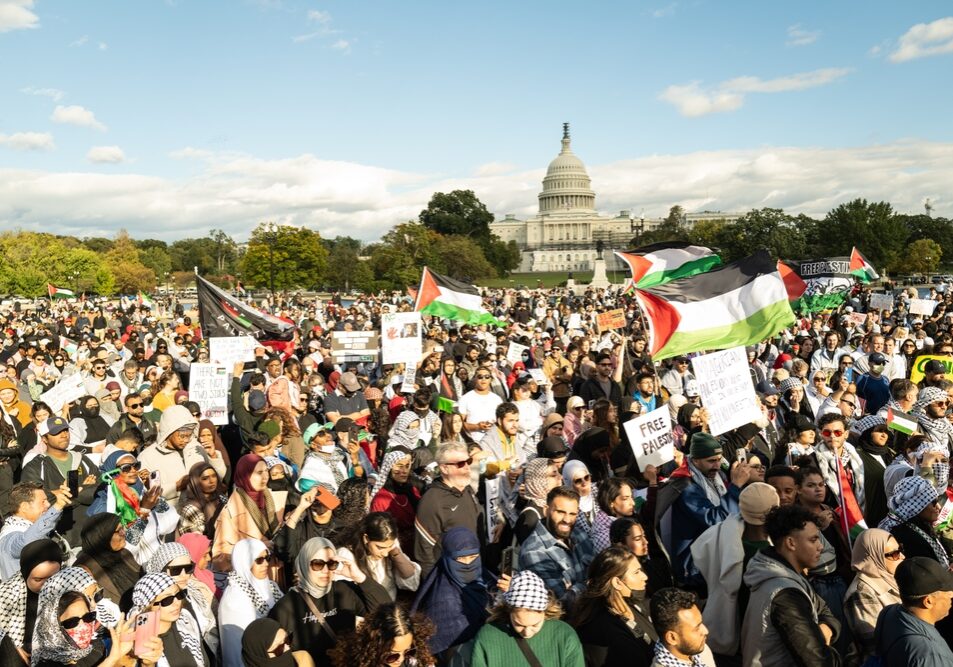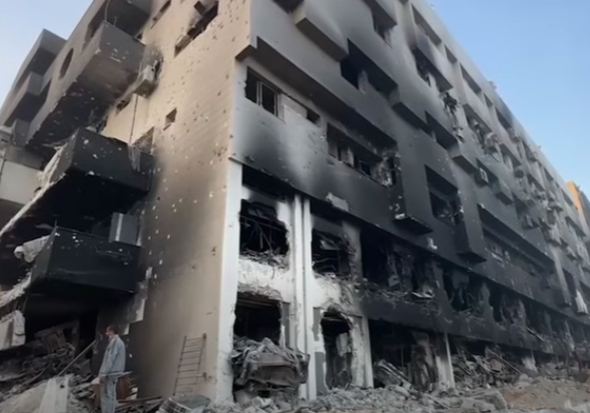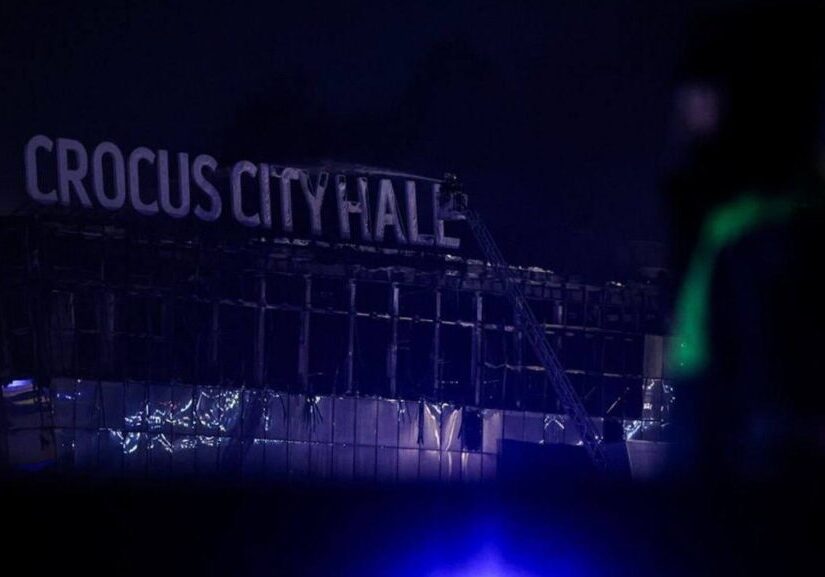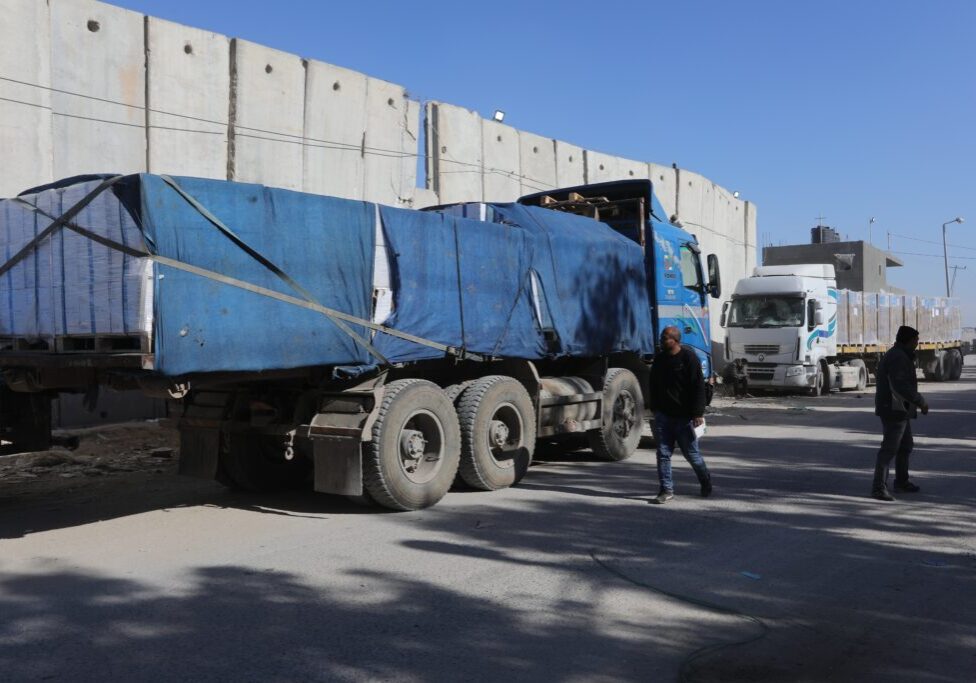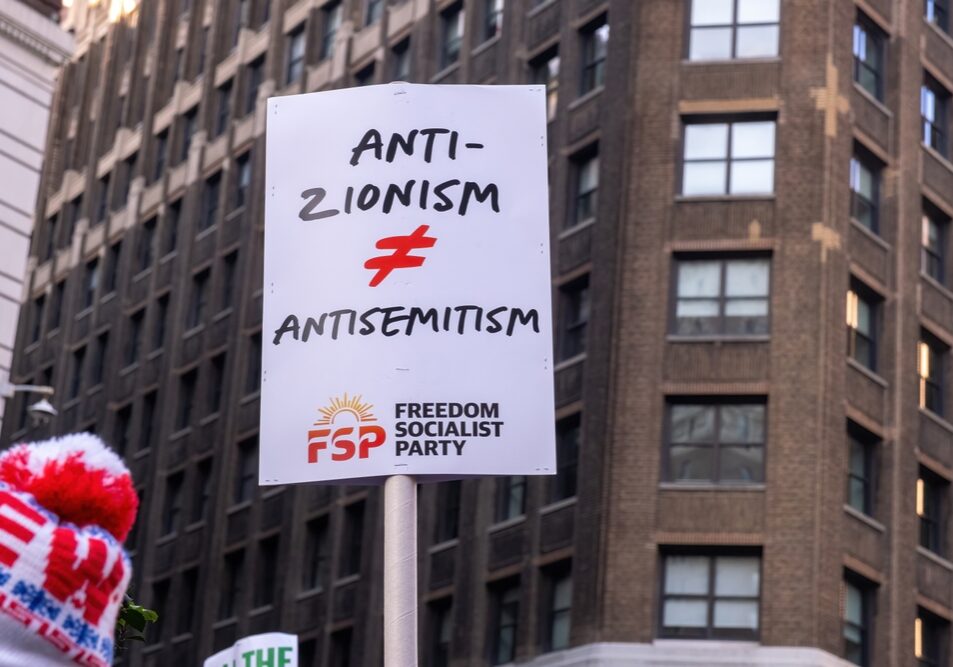FRESH AIR
Palestinian feminists contest issue of election discrimination & textbook stereotyping
Sep 12, 2016

Female activists in the Palestinian territories have had a lot to be concerned about over the past few weeks. First, several Palestinian electoral lists refused to publish the names and pictures of female candidates contesting the municipal election (originally scheduled for October 8), instead referring to these women as the ‘wife of’ or ‘sister of’ Palestinian men. Then, the release of new Palestinian textbooks to be taught in the first and second grade was met with outrage for its portrayal of women as witches and sorceresses.
Both of these moves serve to marginalise women, degrade their role in society and halt efforts by Palestinian feminists fighting for gender equality. In such a patriarchal society, the disempowerment of women is not all that surprising – yet, thanks to the age of social media, these particular incidents have sparked the backlash that they deserve.
Electoral Elimination
Removing the names and photographs of female candidates appears to be a clear violation of Article 5 of the Palestinian Local Elections Law of 1996 that permits women to participate in elections without discrimination. This practice nevertheless took place during the last local election of 2012 (only in the West Bank; Hamas withdrew) when the pictures of women on the ballot were replaced with those of roses or pigeons.
This time, however, many of the women whose names have been hidden are threatening to boycott the upcoming election, taking to social media to voice their frustration. This has given rise to an Arabic hashtag, translated to “our names should not be covered”. Diana Maghribi, a women’s rights campaigner and member of the Palestinian NGO Filastiniyat, explained that this activism is “a call to all educated women to urge the patriarchal society to stop neglecting this powerful social driver”.
Activist Intisar Hamdan sees the decision by some electoral lists to marginalise female candidates as forming “part of the culture that is ashamed of women’s names“. Similarly, Palestinian blogger Ola Anan wrote on Twitter that:
“It is very piteous that a there are people today who are ashamed to mention the names of their mothers or wives. It is deplorable to see that our society is not marching backward, but is in fact living behind. Months, years and decades pass by and our society does not want to move forward from this ‘backward’ attitude – not even one step.”
This move is indeed ironic. As Palestinian Affairs reporter Khaled Abu Toameh notes:
“When Palestinian women carry out attacks against Israelis, Palestinian society glorifies them as heroes. Then the names and photos of these women are plastered across billboards for all to see and applaud. Yet it appears that when the women wish to work for life rather than for death, their identities are not fit for public consumption.”
As a side note, it was reported earlier this week that the Palestinian election has been delayed due to legal disputes between Hamas and Fatah; it is now expected to take place in December at the earliest. If it does eventually take place, it will constitute the first democratic election in both the West Bank and the Gaza Strip since 2006.
Women as Witches
In a second scandal embracing the Palestinian territories this month, it was discovered that new Islamic education textbooks, launched by the Palestinian Authority and distributed to first and second grade children, include pictures of women depicted as witches.
One image of a witch has with it the words from the Quran, “I seek refuge with Allah from Satan, the accursed.” Another is accompanied by a Quran verse which refers to the “evil of malignant witchcraft.”
These images have provoked an outcry from Palestinian activists who claim that they portray women in a negative light – as ‘witches or hags’, or worse, as infidels.
Lubna Al-Ashkar, a member of the Women’s Technical Affairs Committee, has remarked that:
“Using women in this manner harms their image… and is an insult to their sacrifices. This is completely unacceptable because it presents women as the cause for all disputes and evil in Palestinian society. Witchcraft and sorcery are not restricted to women alone, and we call on the Ministry of Education to quickly amend the images.”
Amal Khraisheh, chairwoman of the Palestinian Working Woman Society, agrees, explaining that such offensive depictions are counterproductive and only serve to –
“enhance the masculine culture about the status of women in society and obliterate the sturdy and developmental womanly presence by limiting it to sorcery and witchcraft.”
For evidence of the seriousness in which the Palestinian society takes ‘witchcraft’, blogger Elder of Ziyon reported yesterday that, according to the official website of the Palestinian police, a woman was arrested in Nablus on suspicion of engaging in witchcraft.
Tags: Islamic Extremism, Palestinians

